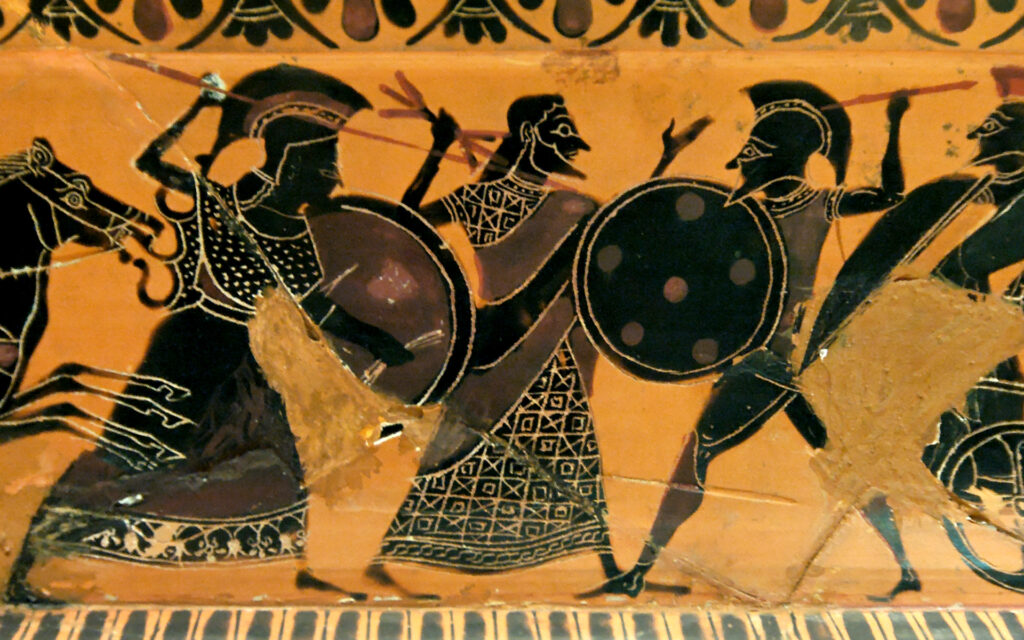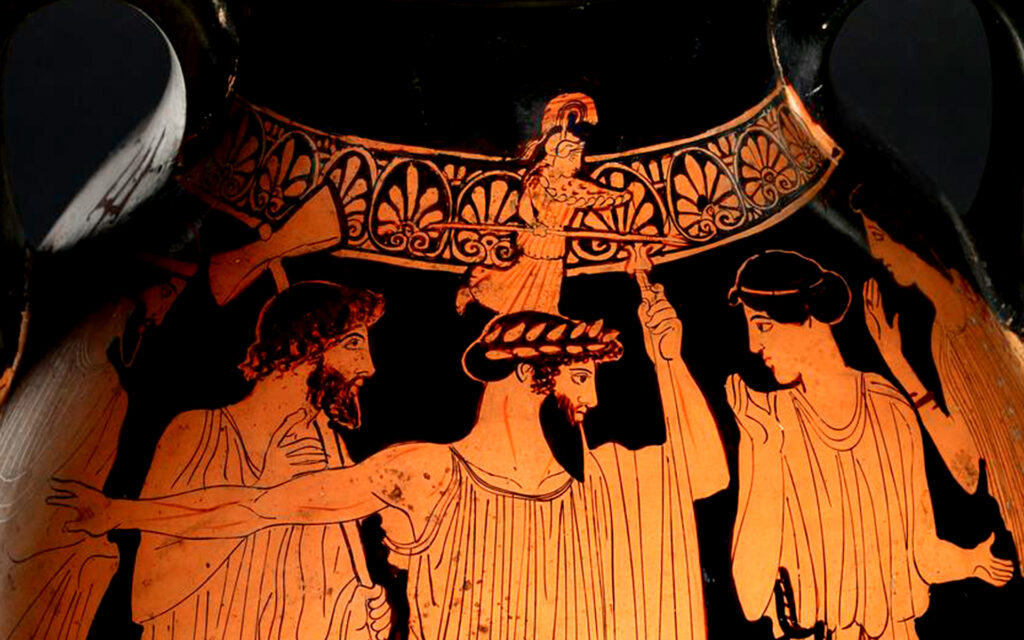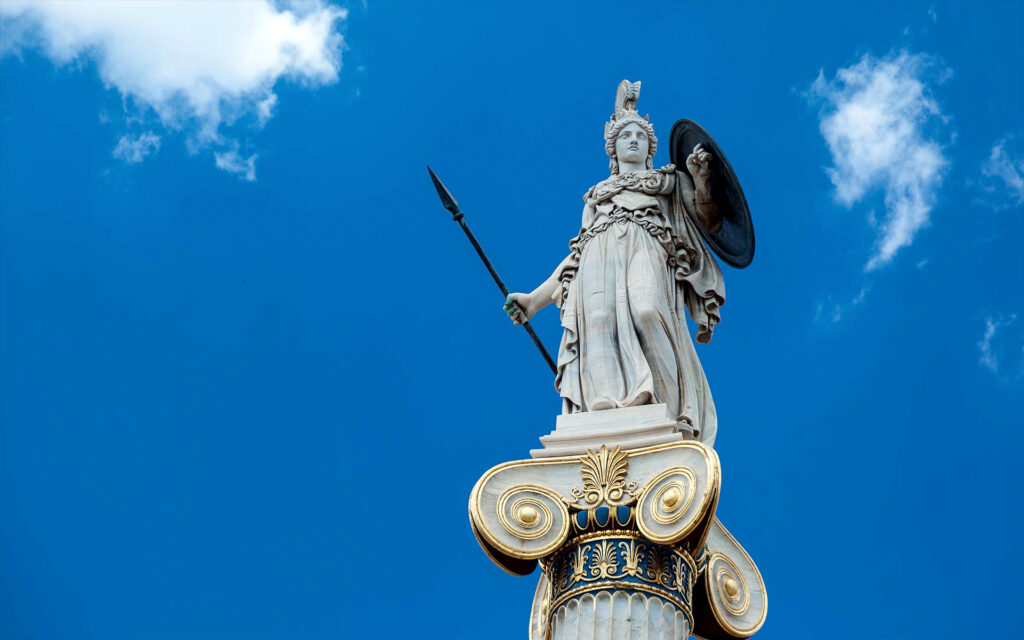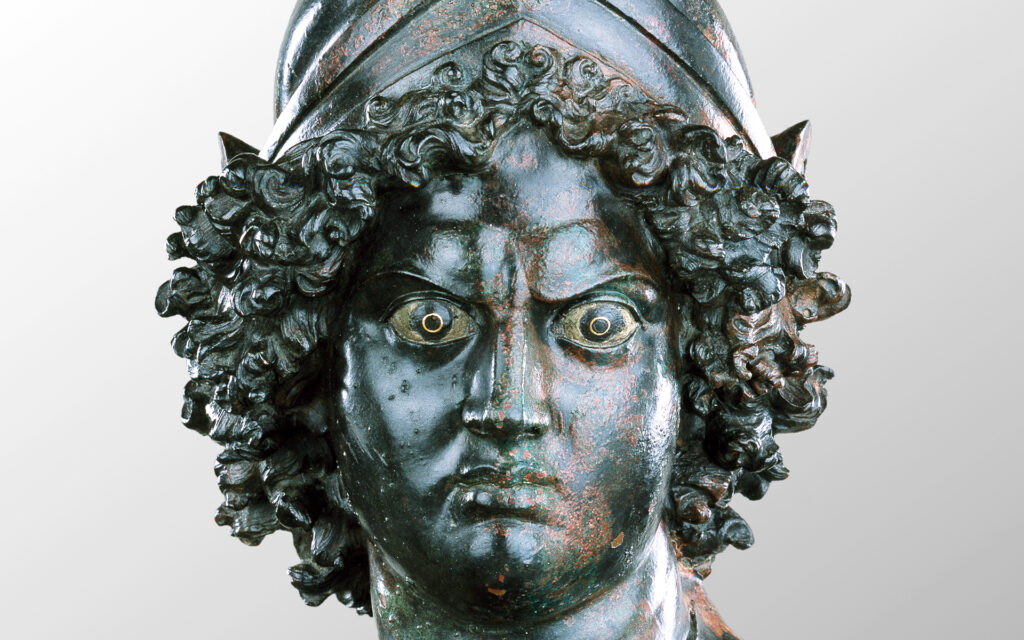Ares and Athena: Chaos and Order
While Ares and Athena are opposite sides of the same coin in many ways, they are almost always fundamentally opposed to one another in the Greek tradition.

The story of Ares and Athena begins with the birth of goddess of wisdom. Metis was an early wife of Zeus. The Sky Father discovered that one of her offspring would be more powerful than him. He swallowed his bride and after several months, the goddess Athena was born from his head, making her the child of the father alone. In anger at this birth, Hera (his new wife and queen of the gods) said she too would have a child alone. She made an oath to her grandmother Gaia (Earth Mother) and went to Thrace where she bore Ares without a father. This telling contradicts Hesiod (who says Ares is the son of both Zeus and Hera) and is not mentioned at all in Homer, aside from the fact that Zeus (and to some extent Hera) hate Ares. Later tradition has the war god as the son of Hera alone.

Daughter of the Father
Athena embodies the finest masculine elements, borne from the cranium of the Lord of Olympos. She stands for skilful action, honour in battle and life, subtle craft, loyalty, battle tactics, wisdom and bravery. She is the hero’s friend, a masculine virgin goddess who is there by the side of the Solar Hero at the moment of decisive action. Unlike the fierce virgin Artemis, who is violent towards suitors, Athena invokes only feelings of fellowship and patronage from those who she is closest to. She is the patroness of the heroes she chooses, abandoning them if they act with dishonour. Athena is part of the most powerful trinity in the Greek pantheon with Zeus and Apollon.

Son of the Mother
Ares on the other hand embodies the wrathful, angry and violent tendencies reflected in Hera at her worst. Conceived with anger, he is the god of frenzied bloodlust. He is the violent abandon that takes over the warrior in the heat of battle and drives him to commit inhuman acts. In the Greek tradition he is reviled in many ways, as evidenced in the Iliad where he is invoked as a terrible chaotic force that needs to be quelled. That he is born in Thrace, a non-Greek territory in the mythological era, tells us that the Greeks considered him foreign in some regard.

Olympians
The difficulty arises in the modern mind that sees this as pure dualism. The Greeks, while fearing and loathing Ares in many ways, and revering and loving Athena, place them both in the Olympian pantheon. The two forces do not fully oppose each other in the ancient mind. Both occur in the warrior in the heat of action. The mature warrior can rein in his bloodlust and frenzy, while still making use of it. The immature violence of the youth is reined in and focussed by the wisdom and council of Athena.
The two represent Dionysian (Ares) and Apollonian (Athena) forces, which, as I state in Undying Glory, are not fundamentally opposed, but two sides of the same coin. The Apollonian order controls the Dionysian abandon, allowing it to be used when necessary in order to further that hero’s journey on the Solar Path.